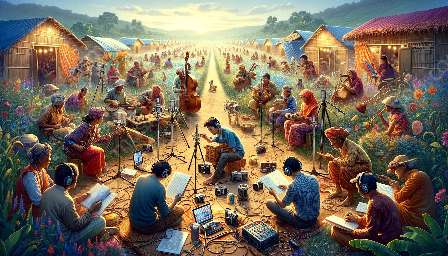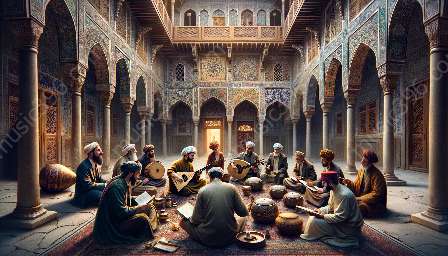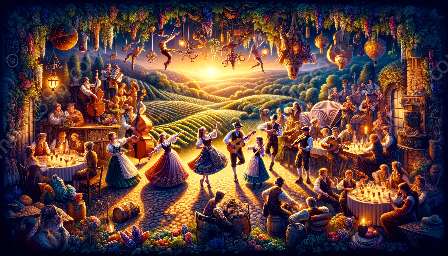European folk music traditions hold a significant place in ethnomusicology and are influenced by various economic and political factors. These traditions, which vary widely across the continent, are deeply rooted in the history and culture of different European countries. In this topic cluster, we will explore the impact of economic and political factors on the evolution, preservation, and transmission of European folk music traditions.
Economic Factors
Economic conditions have played a substantial role in shaping European folk music traditions. Throughout history, economic factors have affected the livelihoods and social structures of communities, consequently influencing their musical expressions and traditions. Here are some key economic factors that have influenced European folk music traditions:
- Rural vs Urban: The economic divide between rural and urban areas has influenced the development of folk music traditions. Rural communities often have distinct musical styles and instruments that reflect their agricultural lifestyles, while urban centers have been breeding grounds for the fusion of traditional folk music with modern influences.
- Industrialization: The industrial revolution in Europe brought about significant changes in the social and economic fabric of many regions. This period witnessed the migration of rural populations to urban centers in search of employment, leading to the exchange and blending of musical traditions.
- Globalization: In the modern era, globalization has impacted folk music traditions by facilitating the exchange of musical ideas across borders and contributing to the commercialization of traditional music. Economic factors such as tourism and international trade have also influenced the presentation and commodification of European folk music.
Political Factors
Political dynamics have also played a crucial role in shaping European folk music traditions. From wars and conflicts to social movements and national identity, politics has left an indelible mark on the music of various European regions. The following are some political factors that have influenced European folk music traditions:
- Nationalism: The rise of nationalism in Europe during the 19th and 20th centuries spurred a renewed interest in folk music as a means of cultivating national identity. This led to the preservation and promotion of traditional musical forms as a symbol of national heritage.
- Colonialism and Post-Colonialism: The history of colonialism and its aftermath have had a profound impact on the folk music traditions of European countries that were once colonial powers. The blending of indigenous musical traditions with influences from colonizing cultures has given rise to unique hybrid forms of folk music.
- Regulatory Policies: Governmental policies and regulations, including those related to cultural preservation, funding for the arts, and copyright laws, have shaped the contemporary landscape of European folk music. These policies influence the documentation, dissemination, and evolution of folk music traditions.
Significance in Ethnomusicology
The study of European folk music traditions holds immense significance in the field of ethnomusicology. Ethnomusicologists seek to unravel the intricate ties between music, culture, and society, and European folk music serves as a rich tapestry for such exploration. By examining the economic and political factors impacting folk music traditions, ethnomusicologists can gain valuable insights into the historical, social, and cultural dimensions of music. Additionally, the interplay between local traditions and global influences provides a fertile ground for the study of musical syncretism and adaptation.
Moreover, ethnomusicologists are interested in understanding how folk music traditions adapt to changing economic and political landscapes, as well as how these traditions contribute to issues of cultural identity, representation, and social cohesion. By documenting and analyzing these musical expressions, scholars can contribute to a deeper understanding of the human experience through the lens of music.
In conclusion, European folk music traditions are deeply intertwined with economic and political factors that have shaped their evolution over time. By delving into these influences, we can appreciate the resilience and adaptability of folk music in the face of changing socio-economic and political pressures. Understanding the significance of these traditions within the broader context of ethnomusicology enriches our appreciation for the diversity and depth of European musical heritage.



































